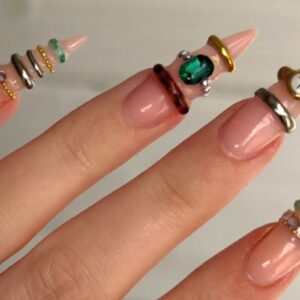
5 things I love about being a competition judge
By Alex Fox | 13 February 2021 | Feature, Tech Talk
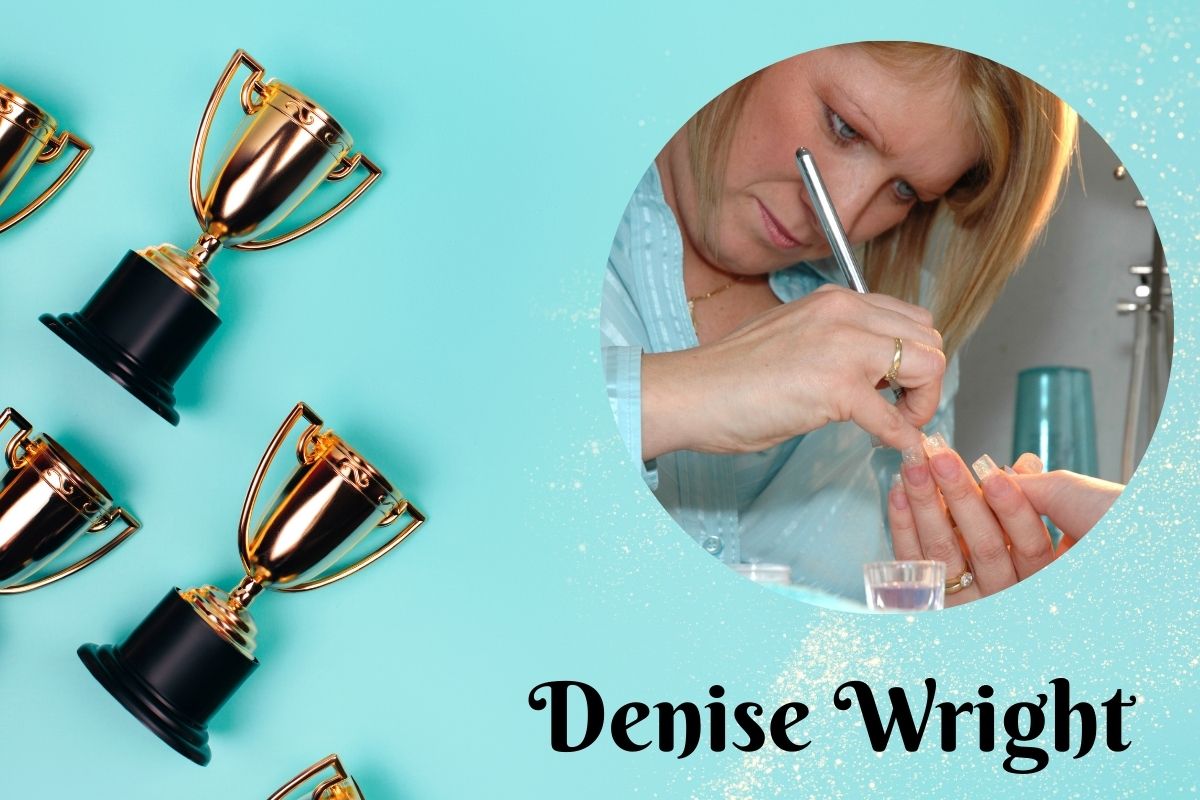
Scratch chats to Denise Wright, who’s name is synonymous with nail competitions, about why she loves running & judging nail competitions
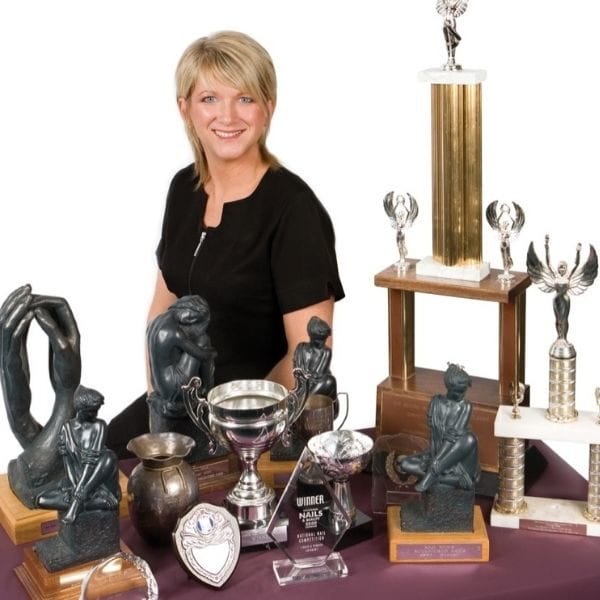
1: What it means to me
Competitions have been an important part of my life since I started competing at the age of 24. From that very first competition I was smitten. I thought I was great! I wasn’t as good as I thought! But what it taught me was a very strong lesson that competitions need discipline, passion, a desire to better yourself and perfect your profession. I loved those challenges. The first competition I entered I felt disappointed in myself, I felt unprepared and it showed. But it didn’t happen again. I made lists and a practice regime. It all paid off.
After winning 10 first placements I was asked to judge competitions. It was a great experience to see and be behind the curtain. I learnt so much. What you think happens and feel as a competitor, is humbled by being a judge.
I would recommend that anyone keen to judge, to takes a judge’s workshop, even if you’re not ready or experienced enough, because to see through a judge’s eyes and feel the responsibility of what your marks mean as well as having to justify those marks to a competitor is enlightening. It’s always good to see two sides of a coin.
I love being a judge as it allows me to nurture those who are fearful of competing. I want them to feel at ease and embrace the experience, learn from it and improve themselves. As a judge I can do that. Whether you win or lose you will still enrichen yourself as a nail technician.
From being asked to judge, many doors began to open for me in the nail industry. It has presented a diverse career path to a level I didn’t think I could achieve, yet did. As a judge and competition director, I enjoy writing the competitions and introducing new categories that follow industry trends allowing as many techs from different levels to enter. I’m very competitive with myself, always wanting to be the best I can in my chosen path. Competing and judging gave me confidence to do that. Defined me as a person. I want others to feel that passion and enjoy the experience as much I have.
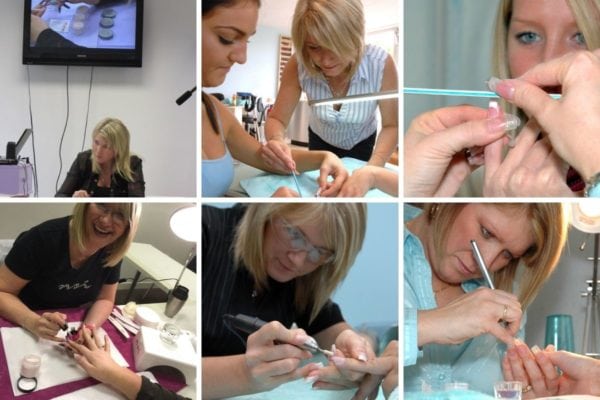
2: Meeting people
As a judge in the UK and on the international circuit I’m privileged to see the skills of many artists. It’s always a thrill to see something new and chat to the creators of such artistic flair. As a floor judge you see many new techniques innovated to help achieve the high standard required by competitions. That may be as simple as a new way to fit a form, mould a tip or even tools you haven’t seen before. This is when you get that fizz in your stomach and smile to yourself and think ‘Now that’s clever!’ I love that. I think that’s my favourite thing, seeing a new technique that I not seen before. Especially if it makes it easier to achieve that perfect nail. I’m a structure girl; pink & white was always my thing. I love a bit of art like anyone and some of these competitors blow your mind with their creativity and imagination. Competitions allow skills to go mad. That time on the carpet is yours to create, that’s what I like the time to create perfection.
Being a judge keeps you on your toes as you have to think of all the cheats and scenarios before they happen. So, the competitions are as fair and enjoyable as possible.
As a judge and a competitor, I’ve made some amazing friends in the industry. When the pressure is off after judging it’s great to chat to everyone, to swap ideas and let off steam after the pressure. We then plan the next competition, pull the rules and score sheets apart in order to make the next one even better.
Since lockdown and restrictions have denied us the comp area, I’m launching for 2021 a way to feel the buzz and involvement of a live show, within the rules. On 14 June, students and professionals can enter the first ZOOM competition. This will involve a floor judge watching competitors work by viewing from above the nail where their camera is placed. All the same time checks and rules from the competitions will come into play. Competitors will be given numbers at the beginning of registration on the day. Then when the competition is finished, the judges will be invited in for the judging. Also, competitors can use their own hands in case they are in a lockdown area, or struggle to find a model.
I will be running some free workshops all through May. As it’s a new idea, techs find out how to set up and ask any questions before the competition. It’s quite exciting. So, give me a shout on the competition email- nailcompetitions@gmail.com for any updates. Spaces will be limited, so drop me an email if you’re interested. It’s best that way for tracking purposes.
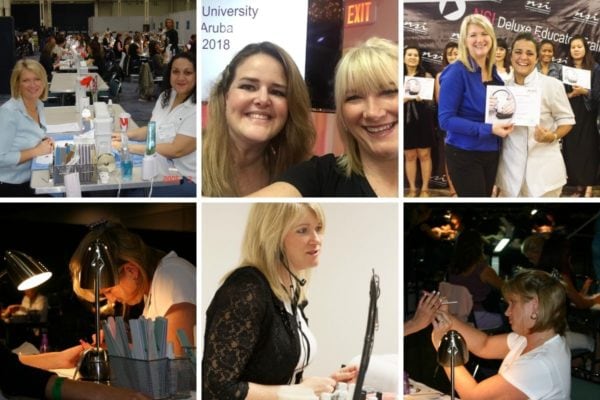 .
.
3: Giving feedback to promote perfection
Giving constructive feedback is good. Even if a tech doesn’t agree with the comments at the time, they should listen, digest and reflect on the comments and study their score sheet. I learnt an important lesson from an amazing judge, Vicki Peters, when I competed in the USA. She pointed out the weaknesses in my nail structure, that I didn’t even see. I always lost the corners of my smile line because of the way I filed to get it thin, then lost points because it threw out three aspects of the judging criteria. I was looking at my nail rather than linking my nail to what was judged, as well as making my nail beautiful.
So, for me as a judge, I love passing on that knowledge. Seeing the penny drop in their eyes. I think that’s why I love to teach. Taking the mud out of the water to allow people to see more clearly. I’m a logical person, and that logic makes me a good nail tech. Precision in application in competition and perfecting my filing technique saves me time in the salon and in competitions. When I was doing a class, I was asked how long does it take me to file and buff a set of nails, so I timed it for fun. It was 11 mins for all 10 nails. In competitions that allows more time for application.
A great exercise for competing and for your salon clients too, is to have a time sheet as you do a set of nails to see what you need to spend your time on and where you lose time. Then you can work on your weaker areas. Work out your routine. This allows you to keep perfect time in a competition. Involve your model, she’s invaluable as your time keeper. This relieves pressure on the day.
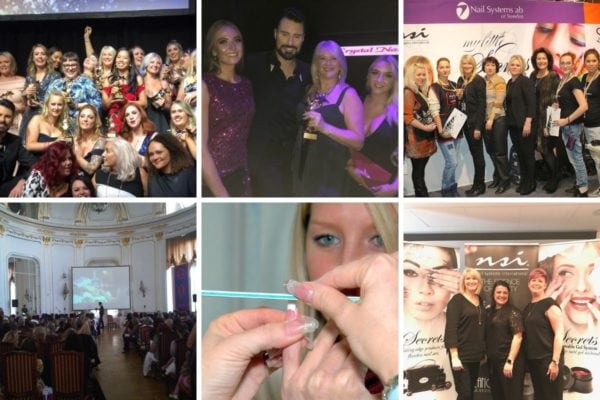
4: Admiring the creativity of budding techs
I’ve seen some amazing things over the last 30 years! Techs that were so advanced for their time, creating some amazing techniques over the years. It still amazes me to watch the imagination of techs. It isn’t surprising, since the advancements in nail products have taken amazing leaps over the last decade. Look at the materials we have to create our designs with. If you look back over the last decade at the photographic entries for example. The standard has come on in leaps and bounds and for many reasons. Industry and marketing have embraced it. Techs have got more direct in instructing photographers to get what they want from their pictures, capturing the creativity to express in their nails. You can see this progression in product adverts. It’s also spilled over into pop artists, TV shows and the catwalk.
The boxed nail art is so beautiful. Who would believe you could fit so much design on a set of nails! I take my hat off to all of you that enter this category.
.
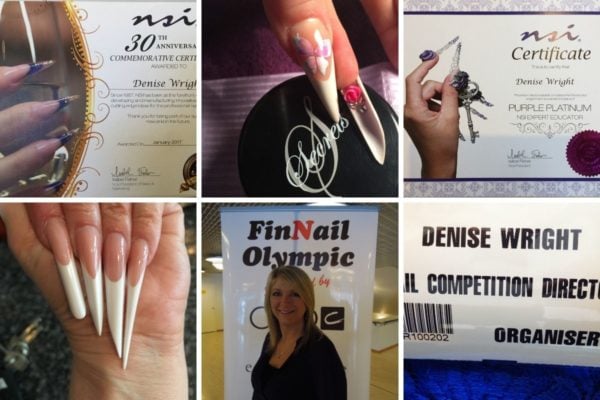
5: Travel – inspiring techs to see the bigger picture
I’ve been lucky enough to travel the world with my job. I find it stimulates my mind. It fascinates me how some competitions from different countries are the same and some are so different.
Lesson 1: Read the rules! Never assume all competitions are the same. Also, each year we have to tweak things, that might be a show restriction or a schedule change to fit everything in.
What is great is seeing techs that I’ve taught and advised during their journey in the UK and abroad, develop and grow. That’s what being a mentor is all about. Some started with just lessons and now own their own salons. Some have developed a teaching career or developed into ambassadors of their own brand. I’m mentoring many now on both camera and stage presence. I’ve had the privilege to work with many camera men and directors that gave good advice during my time with them. One in particular used to work in theatre. He picked up that I don’t pronounce my vowels. Sounds daft, but it works and allows me to project my voice and take control of the stage. Try it, it works.
Take that first step in that competition and look at what you can achieve. Keep competing, push forward to achieve your goals, that’s why there are so many tears on stage because it’s the passion turning into achievement.
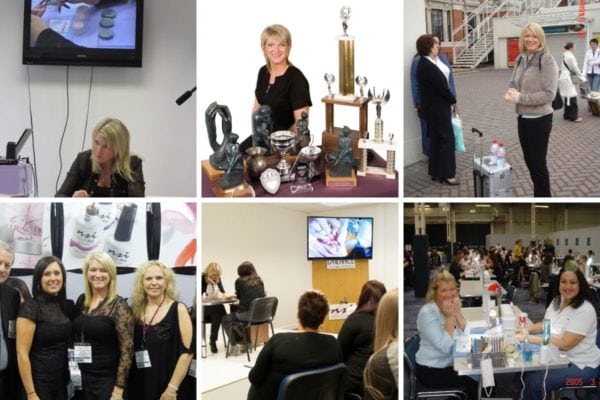
Here are some ideas from my career path and that might entice you to take the first step to compete and enjoy a diverse career.
Nail tech, salon owner, competitor, judge & competition director, educator, writing standards HABIA, examiner for City & Guilds, assessor, internal verifier, training school director, global ambassador, celebrity nail tech, TV presenter, stage presenter, photo shoot participant, photo shoot director, video editor, columnist, voice overs, research & development coordinator.
It all started with competitions. Where will your journey take you? See you there…
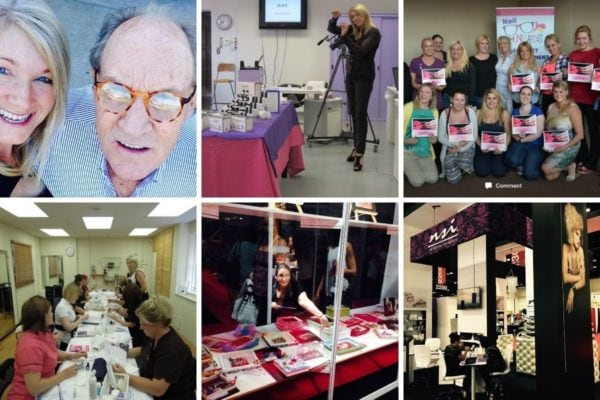
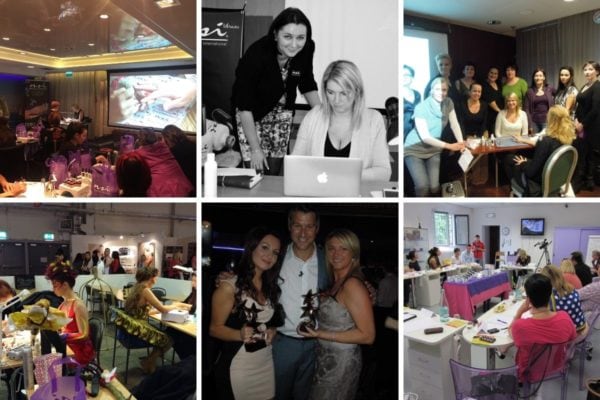
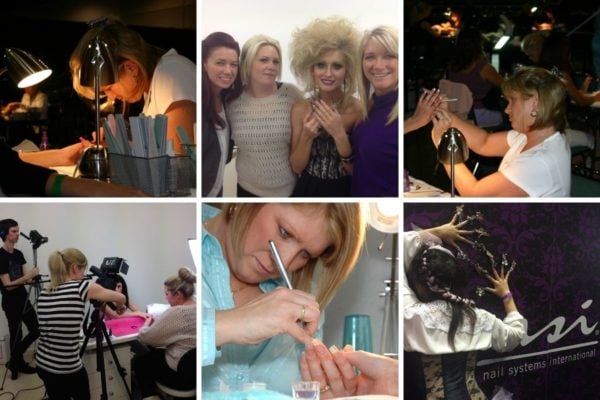

Read the latest issue









